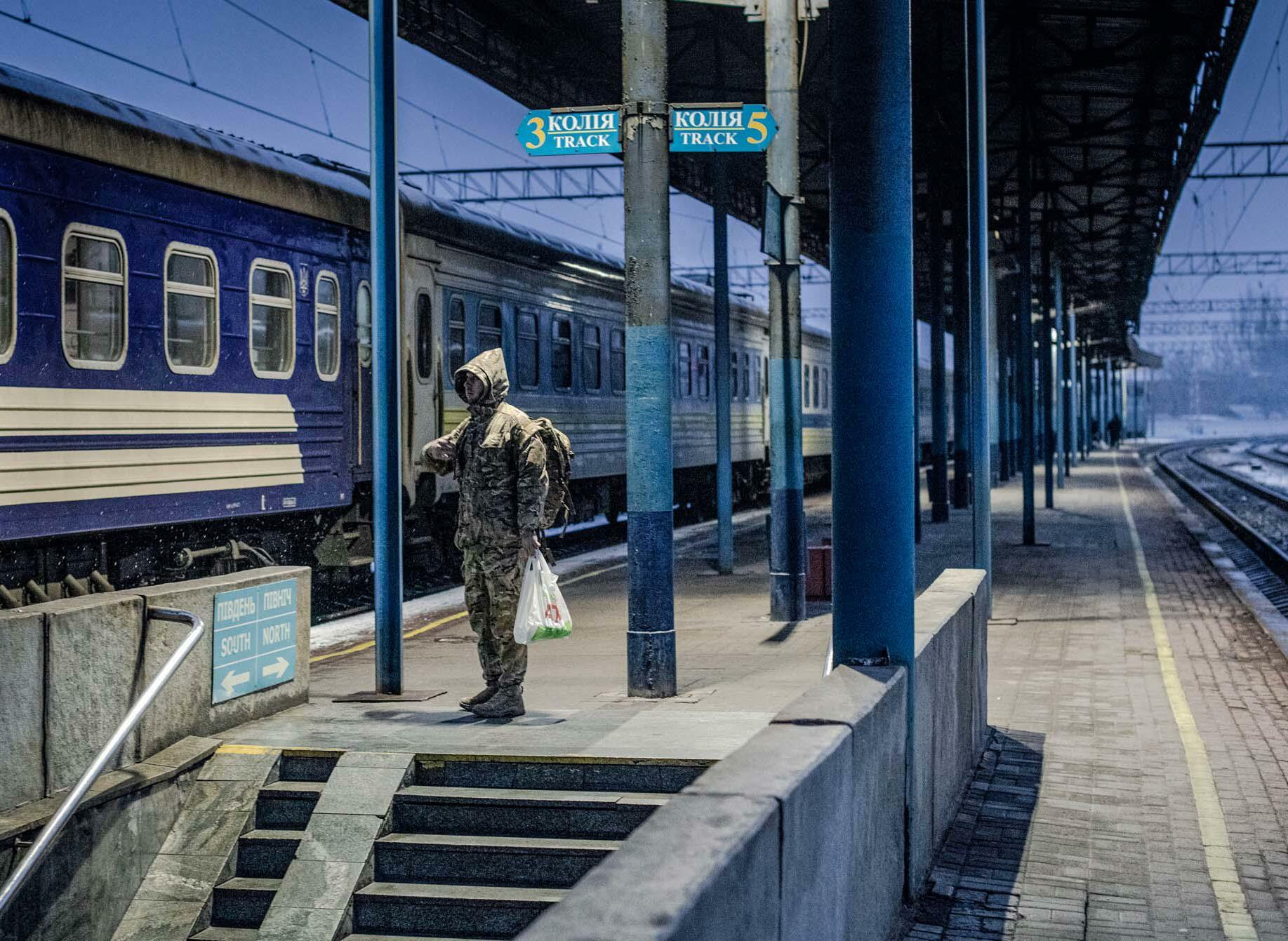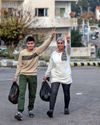
Carriage attendants slammed shut the heavy metal doors, a few people on the platform waved forlorn goodbyes in the evening gloom, and the train clattered off on its journey across the entire breadth of Ukraine, a 1,400km ride from close to the frontline all the way to the border with the European Union.
In the two years since Vladimir Putin's invasion, the railways have been Ukraine's lifeline, connecting cities and carrying millions of people to safety. Train number four has 10 carriages, nine with second-class, four-bed sleeper compartments, and one luxury carriage of two-bed compartments, for the 20-hour journey from the smokestacks of Zaporizhzhia to the cobbled alleys of Uzhhorod.
In the decades since independence in 1991, Ukraine has often been viewed through its divisions, particularly the tensions between the largely Russian-speaking east and the mostly Ukrainian-speaking west. That was always an oversimplification, masking many different and more subtle dividing lines, unsurprising in a country of more than 40 million people, with a turbulent history.
When Putin launched full-scale war two years ago, the east-west divide dissolved further. The Kremlin's idea that many Ukrainians would welcome Russia turned out to be false, and a new and broad national identity was forged in opposition to Russia's marauding armies. Even in places such as Zaporizhzhia, a grimy industrial city on the Dnipro River, of broad avenues and bombastic Stalin-era buildings, people put up fierce resistance to the Russians.
This story is from the March 08, 2024 edition of The Guardian Weekly.
Start your 7-day Magzter GOLD free trial to access thousands of curated premium stories, and 9,000+ magazines and newspapers.
Already a subscriber ? Sign In
This story is from the March 08, 2024 edition of The Guardian Weekly.
Start your 7-day Magzter GOLD free trial to access thousands of curated premium stories, and 9,000+ magazines and newspapers.
Already a subscriber? Sign In

'It's really a disaster' The fight to save lives as gang war consumes capital
Dr James Gana stepped out on to the balcony of his hospital overlooking a city under siege. \"There's a sensation of 'What's next?'. Desperation is definitely present,\" the Médecins Sans Frontières (MSF) medic said, as he stared down at one of scores of camps for displaced Haitians in their country's violence-plagued capital.

Trailblazers The inspiring people we met around the world this year
From an exuberant mountaineer to a woman defiantly facing the guns of war, here are some of the brave individuals who gave us hope in a tumultuous 2024

Votes of confidence
From India to Venezuela and Senegal to the US, more people voted this year than ever before, with over 80 elections across the world. With rising authoritarianism and citizen-led resistance revealing its vulnerabilities and resilience in the face of unprecedented challenges, has democracy reached its breaking or turning point?

Out of touch How president sealed his own fate in martial law gambit
For Yoon Suk Yeol, this month's short-lived martial law declaration wasn't just a catastrophic miscalculation - it was the culmination of a presidency that had been troubled from the start.

Son of the soil Who is François Bayrou, the farmer turned prime minister?
François Bayrou, the new French prime minister, calls himself a country man. A tractor-driving \"son of the soil\" and breeder of thoroughbreds, he has run for president three times, saying his rural roots and centrist politics led him to try to find common ground between left and right.

Power plant workers keeping the lights on
The Guardian Weekly visits a Soviet-era coal-fired thermal installation to learn how it has held up to Russian attacks

Prince charmed Alleged spy scandal may have exposed China threat
Prince Andrew should be commended for doing Britain a great service, according to longstanding China watcher Charles Parton. The now marginalised royal has, the analyst observed, \"almost single handedly\" succeeded \"in highlighting the threat to free and open countries\" posed by the contemporary Chinese state.

In Moscow, a new life of secluded irrelevance awaits Assad
He was whisked away without a last message to his people, the aircraft's transponder deliberately switched off to avoid detection as it departed from an airbase in Syria.

'We fear new oppression' Alawites worry over rebel rule
To prepare khubeiza, the leaves of the kale-like plant must be roughly chopped and sauteed with onions, garlic and a dash of salt. According to folklore, the recipe originated among the Alawite communities who lived in Syria's mountainous coastline where the fibrous, wild-growing plant can be found in abundance. So poor were the Alawites in Ottoman times, the story goes, that the only food they could find to eat was khubeiza, which sprouts like a stubborn weed every spring.

'Gisèle is waiting for explanations'
The Pelicot rape trial has horrified the world. But as it comes to an end, the questions it has raised about French society and rape culture have still not been answered.